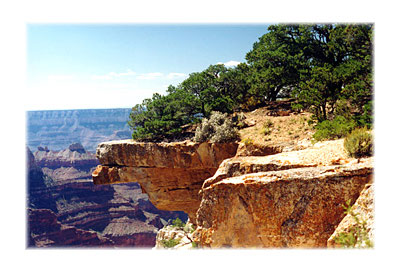Inauguration of the Friedensmal in 2015 with school classes from Israel and Bensheim.
Chapter: Philosophy / Orientation
Images for healing as an Orientation
Before starting off on a long journey, it is necessary to have an orientation, to know that the way leads in a sensible direction. Life itself is such a way, on which we constantly develop through processes. We often get stuck on a certain step of a process. The question is: How can we encourage someone who’s stuck and doesn’t know where he is, who doesn’t see any order in his life’s processes? How can we encourage an entire country?We think in words and images. Each change inside their understanding, classification, and valuation tremendously effects individuals and society alike. Those words and images that are capable of touching the inner truth within someone can help tear down inner blockages. Man would no longer feel restricted and manipulated from the outside, but free from the inside. This way, an entire society can find the strength necessary for a psychological and spiritual awakening.
The power of the symbols lies therein, that they allow a new freedom in thought with new images in the understanding. The symbolic of the Friedensmal (monument) describes a healing process for the current state of our German society. “Images of love” can offer the people in our country a new freedom and appreciation for life. As such, this website revolves around responsibility and a positive destiny for our country.
An idea is brought into the world
An idea can have the power to effect change in a society. The expression of an idea – a symbol, a monument – promotes it, and as such the Friedensmal can possess the power of change – all life is change. In its context of the younger German past, it is the first site for peace and freedom in Germany. This site makes visitors aware of the fact that a monument doesn’t necessarily need to focus on the past, that it can equally appeal to the past, present and future. Why is this Peace Site the first of its kind, while there are so many memorials of admonishment that the younger generations struggle to accept because they fail to express hope or life? Isn’t every confrontation with our past without focusing on integration, without focusing on the positive fruit of this labour, an obstruction?With the Friedensmal the chains are broken, that bind us to believing in a futile confrontation without awakening and healing, which is nothing more than a feeling of victimization. This liberates us - as a Turning Point for Life (center of the Friedensmal) - to start working for a better future, as a consequence of bad past experiences. This above all also refers to the individual. It empowers Germany to own up and live up to its historic responsibility in a spirit of freedom. It releases us from a perception of the past as only a burden and enables us to be a blessing inspired by these dark experiences of the past. Here, “to be a blessing” does not mean that the German essence holds the key to healing the world, but rather that people respect the ideas of others, are strong enough to remain true to themselves, and develop a healthy feeling of self-identity. It also releases Germany from this sense of victimization, which, taking into account its past, might initially seem rather curious, but can be explained dialectically through the one-sided attachment to the confrontational step. To overcome this attachment means to (again) open Germany’s eyes to the spiritual. This explains a great deal.
The concept behind the Friedensmal is based on the same insight already expressed by Plato in his Concept of Ideas: All developments that we identify in the world are the effect of ideas. Therefore, change can initially only take place in spirit and mind. Here, the process of change is initiated. This is where the work must be done. Any attempt to change the world without taking this thought reality into account is like Don Quixote’s attempt to “fight the windmills” – it’s futile. Then, the idea is brought into the world and subsequently needs to anchor itself into the material, for example through a material work of art. One can only hope that our society, in a timely manner, rediscovers the wisdom of where salvation or disaster can be found. That it again learns to assign the relevant value to the "world of ideas", recognizing the tremendous value that it possesses. For me, this is a question of our culture’s and society’s survival. Germany was once called the nation of poets and thinkers. Where are we now?
Before the abyss
If we only speak of memorials of admonishment reminding us – for all rights – but consider the idea to make symbols for peace and freedom absurd, because nobody seems interested in such marks in our world, would this mean that we stand before the abyss?The day might come that we no longer have any cheerful fools with the courage to make these symbols for peace and freedom, who do so in spite of the state of our world, or actually because of it, even if it seems futile. If this day comes, we are hopelessly lost. In the abyss.
For a world without love would be a cold and dying world.
Love does not want to change – neither the world nor the people. It IS change. It might look like buffoonery, but it’s actually the pinnacle of wisdom. It’s life.
Where are we standing?

Return to overview: Philosophy
